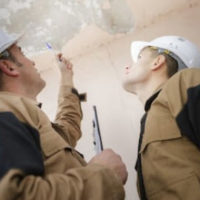How Long Can You Wait Before Suing a Contractor Over a Leaky Roof in Florida?

One of the most common construction defects is a leaky roof. In severe cases, a leak might be an indication the entire roof has failed and needs to be replaced. When this happens, the property owner may seek to hold the original roofing contractor or sub-contractor liable for damages.
Four-Year Clock Starts to Run When Property Owner Discovers Leak
But, it is important to understand that as with all civil claims, there is a strict time limit to bring a lawsuit against a contractor. This is known as the statute of limitations. The actual time limit will vary based on the type of claim involved. But for most lawsuits based on the “design, planning, or construction of an improvement to real property,” the statute of limitations is four years.
Now, the trickier question is, “When does the four-year clock actually start to run?” In the context of leaky roof claims, the Florida Supreme Court explained in a 1983 decision, Kelley v. School Board of Seminole County, that the limitations period begins when the property owner “had knowledge of the defective roofs sufficient to put it on notice that it had, or might have had, a cause of action.” This is not necessarily when the roof is completed. Rather, it is when a property owner discovers–or should have discovered through reasonable care–that there is a leak in the roof.
For example, in a more recent case, Covenant Baptist Church, Inc. v. Vasallo Construction, Inc., the Florida Third District Court of Appeal dismissed a constructive defect lawsuit based on the timeline of the property owner’s discovery of a roof leak. The appeals court noted it was “well documented” in the trial court record that the plaintiff “had knowledge of the roof leaks by 2006, yet failed to file suit until 2011.” Since that fell outside of the four-year statute of limitations, the court was compelled to dismiss the case, regardless of any merit it might have had.
Identifying the Signs of a Leaky Roof–And What to Do About It
The lesson here is pretty straightforward: As soon as you notice a leaky roof or similar defect in your building, you should contact a qualified Florida construction lawyer to learn more about your legal rights. Especially when it comes to something like a leaky roof, any delay in acting on your part can have serious consequences later.
Fortunately, spotting a leaky roof is often not that difficult, even for people who do not understand construction. Some of the more common signs of a leak include algae or mold, buckling or curling shingles, and water stains on your ceiling. If you notice these or any similar problems, it is best to contact a qualified roofing inspector. And call Linkhorst & Hockin to speak with an experienced Florida defective construction claim attorney about your potential legal options.
Sources:
flsenate.gov/Laws/Statutes/2018/95.11
scholar.google.com/scholar_case?case=15019363842790003914
scholar.google.com/scholar_case?case=1607377511324720655
https://www.floridahardhatlaw.com/construction-defect-claims-for-mold-issues/
